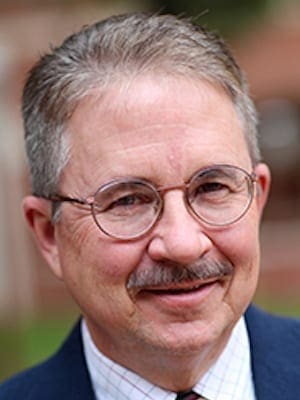Just a few blocks from my house stands a very large and active mainline Protestant church. I’ll leave the denomination unnamed.
Throughout the year, it sponsors and hosts numerous special events including seasonal worship services attended by hundreds if not thousands. Its Vacation Bible School yard signs are all over the neighborhood, and I see them throughout the city.
This is one of the most active and attractive churches in this area. That’s not always the case with so-called “mainline Protestant” churches, many of which are struggling.
Every year this church, like many others, holds a special God-and-country worship service on the Sunday morning closest to America’s Independence Day / Fourth of July. This particular church advertises this special patriotic worship service.
I know many other churches hold them as well, but it’s hard to live in this area and not know about this particular one. The church promotes it heavily. I think that’s somewhat rare for a mainline Protestant church and suspect it may be because the world’s largest military reservation is nearby.
I have criticized national flags in church sanctuaries previously and have earlier criticized “patriotic worship services.”
I won’t go over all the reasons and arguments here, again, but just say that I do not believe worship of God should be combined with nationalism.
As one of my colleagues who teaches worship often says, there should be no “God and …” in worship. Worship should be focused on God alone.
But, of course, one question ministry students and some others often ask me is how to go about planning and leading worship in a church that is tied to patriotic worship on the Sunday nearest Independence Day.
Often simply abolishing it leads to a pastor’s dismissal; many older members, especially veterans (but not only they), rebel against any attempt even to minimize celebration of “God and country” on that “special” Sunday.
When I was growing up in church, we did not have a God-and-country service on that Sunday, but we did always sing one or two “patriotric hymns” during the morning worship service.
One that I remember especially well was “God Bless America.” Another was “America the Beautiful.”
Later, as an adult, I visited some churches that held large, elaborate God-and-country Sunday morning services.
I remember one especially well because a U.S. senator who was not a member spoke, and the church musicians formed a band and played the “hymns” of each of the country’s branches of the military as “color guards” marched down the aisles.
Members and veterans of those branches of the military were especially honored. The whole service was about how great America is. All of the hymns and songs were “patriotic” ones.
That particular service felt to me more like worship of America than worship of God.
So what is my advice to pastors and other church leaders about this upcoming annual national holiday and its celebration, if any, in their churches?
First, I urge ministers-in-training who are seeking their first or another pastorate to know everything they possibly can about a church, including its tradition about this, before accepting the call or appointment.
Second, I urge them to ask the pastoral search committee how open the church is to change – including especially patriotic worship.
Third, I suggest that if they become pastor (or other leader) of a Christian church that does hold a “patriotic worship service” in July, they quietly but consistently begin to move the patriotic elements out of the worship service and into some other venue (time and place).
I have no objection to a Christian church having a picnic, for example, devoted especially to celebration of God’s blessings on America – with American flags in the ground, patriotic songs sung, veterans and conscientious objectors recognized, and a pastoral talk delivered about patriotism without nationalism.
Sometimes, especially in this part of the U.S., those to whom I give that advice roll their eyes and say something like, “I’d lose my pulpit for that.”
In other words, in many churches in this region, the annual God-and-country worship service is a favorite alongside Christmas Eve and Easter Sunday morning.
I understand and agree – unless, I tell them, they wait until they have been at the church long enough for the congregation to love and trust them.
For the first years in the pastorate, preach occasionally about the importance of worshipping God alone and the horrors of idolatry (worshipping anything except God).
Don’t mention the God-and-country worship service in these subversive sermons. Let the message do the work for you; let it sink in so that over time it adjusts the congregants’ thoughts about the wider, larger subject of worship.
Then, begin to suggest moving the patriotic celebration out of the worship space and time and into an alternative space and time, such as a nearby park or the church’s own property, even in the church’s fellowship hall but not as a worship service.
And extract from the celebration anything militaristic or nationalistic; keep it focused on God’s blessings on and challenges to America.
Roger Olson is the Foy Valentine professor of Christian theology and ethics at George W. Truett Theological Seminary in Waco, Texas. He is the author of numerous books, including “Counterfeit Christianity” and “The Story of Christian Theology.” This article is edited from a version that first appeared on his blog. It is used with permission.
Roger Olson is the Foy Valentine professor of Christian theology and ethics at George W. Truett Theological Seminary in Waco, Texas. He is the author of numerous books, including “Counterfeit Christianity” and “The Story of Christian Theology.”

